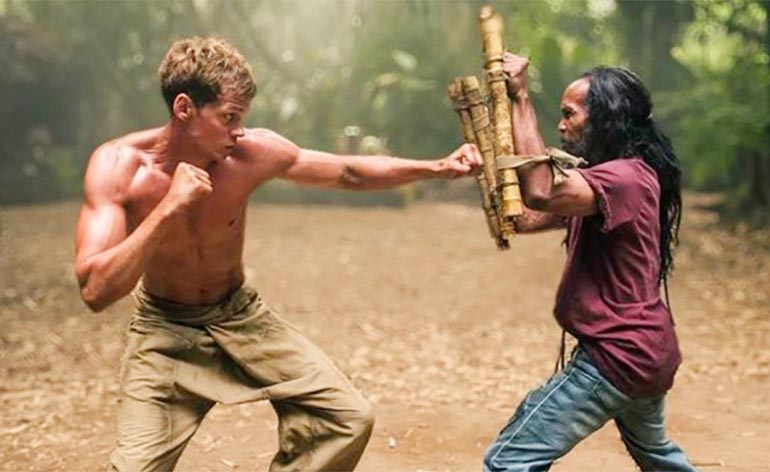
[Credit: @reuterssport on Instagram]
The esports industry has helped launch video gaming from a hobby to a legitimate field. Watching esports teams play and compete for victory can be just as thrilling as watching a traditional sports game.
But now, esports has transcended video games, and technology has allowed it to merge with real-life sports competitions and tournaments. Martial arts is seeing a new shift, and the latest gaming tech is now shaking things up.
This is evident with the emergence of the Olympic Esports, with Singapore holding the series in 2023.
One of the official sports was virtual taekwondo. In the competition, eight Olympic taekwondo legends and eight local youth athletes from around the world competed in a virtual-reality rendering of taekwondo.
They wore headsets and motion-tracking nodes in their hands and shins to follow each move, allowing them to land kicks to deplete their opponent’s health bar in the virtual world.
With esports and technology starting to intertwine with the martial arts world, a lot of new ground can be explored. Here’s how esports are changing the game for martial arts:

Equal Playing Fields
Martial arts typically divide or classify athletes by sex or weight, aiming to make it a fair fight based on their characteristics.
However, bringing esports into the mix can open opportunities for people of varying demographics and abilities to play against each other.
As outlined by Inside the Games, competing in the Olympic Esports virtual taekwondo event enabled a level playing field, disregarding sex, age, ability, and physical differences. The motion-tracking technology and the virtual world setting allowed for one-on-one sparring with no contact, so a player’s weight or sex had little to no bearing on the match’s outcome.
With this level playing field, the outcome of 2023’s virtual taekwondo competition was against Nigel Tan and Natalie Tor, two athletes who both beat legends in the sport and may not have had the chance to compete with each other in real life.

Esports and martial arts can help establish new competing methods and allow more types of athletes to compete, regardless of their ability or who they are.
Betting Culture
Both esports and martial arts have a deep betting culture, and while esports betting is relatively newer on the scene, it’s pretty similar to traditional sports betting.
In martial arts, spectators can bet on sports like UFC, MMA, boxing, and the like. Martial arts betting emphasizes fighter skills, physical attributes, fight history, and trainer strategies. Esports betting hinges on a combination of player skill, game mechanics, and understanding team strategies.
Martial arts betting typically has a similar structure across sports. It can be more straightforward due to the limited number of athletes competing in one match, but esports betting experiences can vary based on the game or team.
Thunderpick’s esports betting tips highlight how researching teams, tournament formats, game rules, and match histories is crucial for making an informed decision, as these can be wildly different for different esports events.
Esports betting and martial arts betting share core principles of risk and reward, but esports offer a unique blend of strategy and action, while martial arts provide the thrill of real-world combat.
However, the fundamentals of both betting scenarios also be used to make informed decisions, whether you’re betting on a boxing match or a League of Legends tournament.
A New Generation of Fans
Esports are attracting a massive and young audience, both on the video game scene and in the martial arts world. Popular fighting games like Tekken 8, Street Fighter, and Mortal Kombat depict various martial arts styles in a visually stimulating and fast-paced environment.
The thrill of competing with another skilled player can be similar to the excitement of a martial arts match, though in a different format. This exposure ignites curiosity in a new generation, potentially leading them to explore real-life martial arts training.
Esports also provide a platform for martial arts to stay relevant in the digital age. Esports streaming culture can be integral to making martial arts exciting for new viewers.
Tournaments can be streamed live, with commentary and analysis, creating a buzz around the fighting aspects of these disciplines. This exposure can attract sponsorships and funding, promoting the growth and development of martial arts organizations.
Esports can also transcend geographical boundaries. Online tournaments connect martial arts enthusiasts worldwide, fostering cultural exchange and appreciation for different fighting styles or video games.
The intertwining of martial arts and esports is still young, but it holds much promise.






